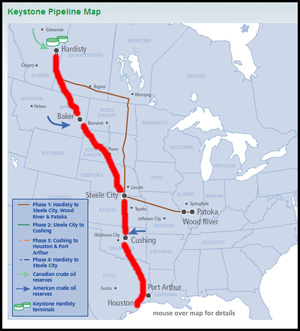Protest
For every American student, September starts a new year. September was a time to put away the suntan lotion and refocus on studies -- on more serious pursuits. Gone were the carefree days of summer, and in came the weather that lives perfectly in my memory -- those almost orange leaves, crisp blue skies, and the faint smell of autumn in upstate New York.
I remember it like this 10 years ago. Fourteen and gearing up for a Varsity volleyball season, I had it all. I had only one worry -- that my dad would forget to pick me up from practice, which he never did.
My class had just finished homeroom -- it was my friend's 15th birthday. I don't remember singing, but I'm sure we did. I moved into my world history class, I think we were on the Greeks. And then, it changed. My choir teacher rushed in and frantically told us to turn on the television. We saw the hallways fill with teachers.
As of yesterday, more than 1,009 Americans have been arrested to bring national attention to the controversial Keystone XL pipeline. This is what church looks like. Liturgy means "the work of the people" in service of the common good.
If President Obama permits the Keystone pipeline, thousands more will sit on his doorstep and in front of bulldozers. This movement doesn't have money to match the influence of oil companies, lobbyists, or politicians with conflicts of interest, but we do have our bodies and we are putting them on the line.
Here are what people of faith -- Jews, Christians, Buddhists, Quakers, Unitarians, and more -- are saying about why they have been or will be arrested to stop the Keystone XL pipeline:
Could nonviolent resistance have succeeded in Libya? Here are four points worth considering:
1) The movement was fairly spontaneous, unlike the highly coordinated campaign in Egypt. As Peter Ackerman consistently points out, planning is an essential element to a successful nonviolent revolution. As with any battlefield, a nonviolent campaign requires extensive preparation. But reports seem to indicate that Libyans began protesting in earnest around Feburary 15th, likely inspired by events in neighboring Egypt and Tunisia. Gadhafi seemed prepared for this and immediately cracked down using overwhelming violence. By February 19th, the movement had become violent in response to these crackdowns. Four days of civil resistance doesn't give it much time to work. Egyptian pro-democracy activists struggled for years before seeing Mubarak fall. Syrian oppositionists, thousands of whom have been killed by Bashar al-Assad's regime, have toiled along for the past six months. So, we can't really say whether or not nonviolence would have worked in Libya. It never had a chance to materialize in the first place.
For the past 30 years, through my work with Maryknoll and Pax Christi International, I've come to know grassroots communities around the world in situations of war and poverty. My mission focus base been largely international, but people, were in the "center of my screen." The environment, I thought, would have to wait.
A few weeks ago, I went with two of my grandchildren, Lauren (10) and Bobby (9), to see the documentary Hubble, which is about NASA's final shuttle expedition to repair a a broken part of the Hubble telescope. We watched in awe at the spectacular photos of the expanding universe. What an amazing sense these photos give of our own location as humans who are part of a larger earth community, who are part of a cosmos with which our own future is inextricably linked.
Won't it reduce our dependence on Middle Eastern oil? Won't somebody else develop the Alberta tar sands if the U.S. doesn't do it -- someone like China, perhaps?
I've been wrestling with many of these issues as I contemplate risking arrest as part of two weeks of sustained protest by leading environmentalists, climate scientists, and faith-based groups at the White House forth to pressure the Obama Administration to block the Keystone XL Pipeline. This pipeline project will connect Canadian tar sands -- containing the second largest and dirtiest oil reserves on the planet -- with the oil refineries in Texas.
 President Barack Obama will decide as early as September whether to light a fuse to the largest carbon bomb in North America. That bomb is the massive tar sands field in Canada's Alberta province. And the fuse is the 1,700-mile long Keystone XL Pipeline that would transport this dirtiest of petroleum fuels all the way to Texas refineries.
President Barack Obama will decide as early as September whether to light a fuse to the largest carbon bomb in North America. That bomb is the massive tar sands field in Canada's Alberta province. And the fuse is the 1,700-mile long Keystone XL Pipeline that would transport this dirtiest of petroleum fuels all the way to Texas refineries.
The Keystone XL Pipeline is a climate and pollution horror beyond description. From August 20 to September 3, thousands of Americans -- including Bill McKibben, Danny Glover, NASA's Dr. James Hansen, and thousands more -- will be at the White House, day after day, demanding Obama reject this tar sands pipeline.
I'm going to be there, and I hope you will join me -- we need your voice.
With all the recent and well-deserved attention on the work of Gene Sharp, it shouldn't come as any surprise that a film about the foremost living strategist of nonviolent action is soon to be released.
